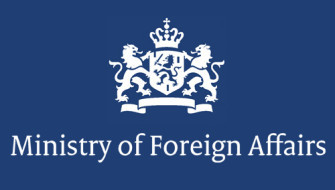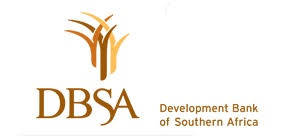Our Government Partners
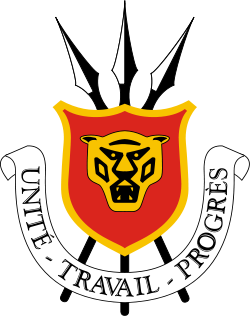
L’Office Burundais des Mines et Carrières
(OBM, Burundi Mine and Quarry Authority)
Burundi

Ministere des Mines
Ministry of Mines and their mining services, Division of Mines, SAEMAP and CEEC
Democratic Republic of Congo
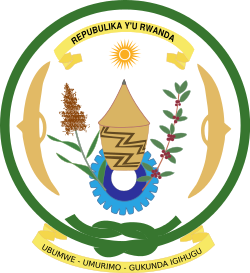
Rwanda Mines, Petroleum & Gas Board
RMB
Rwanda
Our Donor Partners
Dutch Ministry of Foreign Affairs (MFA)
The MFA funded ITSCI to implement the Conflict Free Tin Initiative (CFTI) which achieved a landmark success in 2012 to 2014 by bringing together a range of partners to bring about a resumption of trade to the mines around Nyabibwe in South Kivu, DRC. The significance of this pioneering work remains immeasurable and it leaves a legacy on which iTSCi can build. See the CFTI Legacy Site
Following the success of the CFTI, the MFA generously supported ITSCI again from 2015 to 2017 in order to ensure the Scaling Up of Traceability and due diligence across even more mining areas in central Africa that had been under a de-facto embargo. These funds brought more miners and their communities back into the responsible market, increased economic opportunity, and improved security and governance. Scaling Up also added social value through training on savings and business skills, improving health and safety in artisanal mines, and addressing various human rights issues such as gender equity. See Scaling Up ITSCI
The Development Bank of Southern Africa (DBSA)
The Development Bank of Southern Africa (DBSA) through the South African Department for Trade and Industry dti provided very welcome assistance to ITSCI during times of rapid set-up and growth in 2011-2013. This was focused on activities in Katanga, Rwanda and Burundi, and towards the end of the DBSA project, assisting in pushing back the de-facto embargo in the Kivus’.
Growth with Governance – Promines DRC
Support for equipment and training was provided by the PROMINES project of the Government of the DRC and the World Bank. ITSCI received equipment for use in Maniema and Katanga in 2014, and funding for training of all stakeholders in due diligence and mitigation in 2015. PROMINES aims to enhance good governance in the mining sector and to increase the contribution of the mining sector to the country’s economic growth and sustainable development at the local, provincial, and national level and as such, has objectives well aligned with ITSCI.
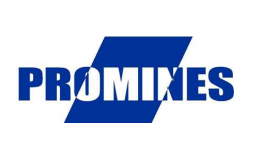
The ITSCI Stakeholder Group
The ITSCI Stakeholder Group (SG) is open to international NGOs, industry groups, academics and independent experts, international institutions and others with knowledge or interest in the 3T supply chains and responsible mineral trade (In particular interested in ITSCI areas, but also beyond). The primary purpose of the SG is to promote constructive dialogue and exchange ideas, and provide information and updates on ITSCI’s implementation on the ground, including major challenges, changes and improvements.
We believe in continuous improvement through positive engagement and dialogues are beneficial ways of exchanging ideas and inputs within the resources and parameters of the ITSCI Programme. The SG fosters greater cooperation with stakeholders by serving as a forum to discuss topics and issues related to the mining sector in general, and to the ITSCI programme in particular.
Our Advisory Panel
Panel members receive information on activities and challenges faced by ITSCI and are welcome to provide suggestions or other comment. Membership of the Panel does not signify an implicit endorsement for the Programme or its activities, and members remain fully independent from the Programme.
ITSCI welcomes enquiries from any potential members.
Jim Freedman
Western University, Canada
Jim Freedman is Emeritus Professor at Western University in Canada and conducts applied policy research in the areas of conflict reduction and building stability in fragile states. He has worked extensively in the African Great Lakes Region, the DR Congo especially, with both the private and public sectors to strengthen reputable mining firms and counter the mineral trade that fuels ongoing conflict. He served on the United Nations Panel of Experts in 2002 which set in motion a proactive, OECD-based strategy for monitoring the mineral trade. He drafted the original design for certifying and tracking minerals in Rwanda that has subsequently been fully adopted. He has worked with the International Conference on the Great Lakes Region to design a scheme that would simultaneously reinforce the ITRI Tin Supply Chain Initiative and provide support for reputable mining organizations. He has served as an advisor to the United Nations and private mining firms in the Eastern Congo on corporate strategies for promoting mining and reducing its criminalization. He has recently published a paper outlining this strategy and its rationale (“Tackling the tin wars in the DR Congo”, Mineral Economics No. 24 2011).


